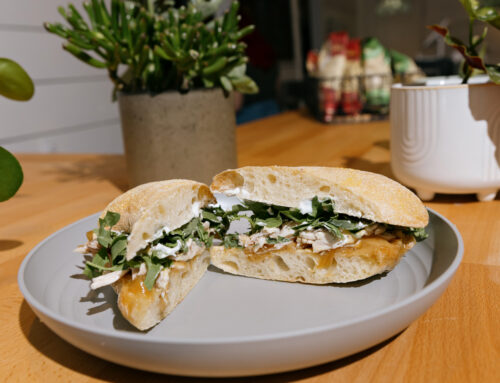European motorcycles, Triumph in particular, are kind of a big deal in Dallas. The force behind that is Big D Cycle, a legendary motorcycle shop that got its start in Oak Cliff in 1963.
Jack Wilson opened the shop after working at Dalio Motorcycle Sales in Fort Worth for many years, following military service in World War II.
As a mechanic at Dalio in 1956, he helped build a world-famous bike on which a Texas racer beat the land-speed record that had just been set by Germans.
He built it with airline pilot J.H. “Stormy” Mangham and racer Johnny Allen. It was called the Triumph Streamliner, nicknamed the Texas Ceegar for its oblong aerodynamic shape.
Allen broke the record on the Texas Ceegar, which ran on methanol fuel, at the Bonneville Salt Flats in Utah. His speed was 214.4 miles per hour. Triumph named its now-classic 1959 Bonneville in honor of that record.
That was just the beginning of Wilson’s career as the mechanic behind dozens of speed records and national-champion racers.
A 1970 Triumph advertisement listed 36 speed records set on its bikes. Twenty-four of them came out of Jack Wilson’s Big D Cycle.
Wilson was fiercely allegiant to Triumph, and he loved to beat Harleys, friends say.
“Jack, first and foremost, was a competitor. He always went to win. Second place is not winning,” friend and mentoree Robert Baucom wrote in a eulogy for Wilson in 2000. “If he had to do a valve job in the blowing sand, on the side of the race track, in a 30-mile-an-hour wind in San Angelo, he did it. Because he came to win.”
Motorcycle racing was a big deal in Texas at the time. In our neck of the woods, they road raced at Hensley Field, the old Air Force base in Grand Prairie. And there were enough tracks in Texas that road racing took place about every weekend.
Wilson brought dozens of young racers to the tracks in Texas and around the nation. All of them started as what Wilson called “piss willies.” He was not one to suffer fools, and he had a temper, former racers say. If they proved themselves fast and better than idiotic, they could graduate to “racer,” in Wilson’s eyes and then, maybe, “champion.”
One of Wilson’s most legendary champions was Rusty Bradley, who started racing for Big D at 16, and he won races all over Texas. Although he wasn’t a mechanic, he worked at Big D after high school, while he attended the University of Texas at Arlington.
The mop-headed kid won so many races that eventually he was courted by Harley-Davidson and Kawasaki. He became a club racer for Kawasaki, winning at Talladega and Daytona racetracks.
From an interview with fellow Kawasaki racer Blaine Birchfield on superbikeplanet.com:
“Rusty was very fast and he was very competitive, he loved to race and loved to win. He’d love to go to some race a few states away and get up there and race with a Gary Nixon or someone. Just to see what he could do. He wasn’t as mechanical with the motorcycle as you’d expect with his background. He was a talented rider, could just do a lot with any kind of bike just because of his riding talent.”
In 1971, Bradley entered the Daytona 200, his first professional race. And he expected to win. In the first turn of the race, however, he took a spill and crashed; he died as a result of his injuries later that day.
Big D turned out many other champions, including five-time national road-racing champion Jon Minonno as well as Buddy Elmore, who won the Daytona 200 in 1966 — the Triumph Daytona was named in his honor.
Triumph Engineering, the original manufacturer of Triumph motorcycles, stopped production in 1984 (the brand would be resurrected 10 years later), but Big D Cycle remained an expert shop for working on classic Triumphs.
Keith Martin, a motorcycle racer who managed Big D Cycles, bought the shop from his mentor in the late ’90s, and he renamed it RPM, selling and servicing Triumphs. Martin moved the shop to Dallas, off Interstate 35 near Walnut Hill, and eventually changed the name back to Big D Cycle.
The original Texas Ceegar had been donated to the National Motorcycle Museum in England and was on display for years before the museum suffered a fire in 2003.
Martin had the Texas Ceegar’s burnt remains returned to Texas, and with the help of the North Texas Norton Owners Association, Ed Mabry and the shop’s staff, restored it to its original condition.





